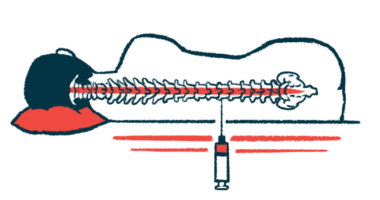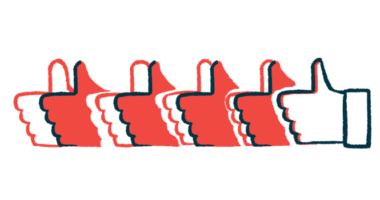BrainStorm, FDA to discuss plans for Phase 3b trial of NurOwn on Dec. 6
Meeting follows agency's rejection of therapy's efficacy in earlier Phase 3 study

The U.S. Food and Drug Administration (FDA) soon will meet with BrainStorm Cell Therapeutics to discuss the company’s plans for a confirmatory Phase 3b trial of NurOwn in people with amyotrophic lateral sclerosis (ALS).
The expedited, face-to-face meeting is scheduled for Dec. 6, less than two months after the company dropped its application for NurOwn’s approval in treating ALS.
Its withdrawal came on the heels of a negative FDA advisory committee opinion, whose members nearly unanimously found not enough evidence to support the drug’s effectiveness in ALS. The FDA then invited BrainStorm to request a meeting concerning next steps in NurOwn’s development.
“We are pleased that the FDA has granted this expedited in-person meeting to discuss the best path forward for NurOwn for ALS,” Chaim Lebovits, BrainStorm’s president and CEO, said in a company press release.
NurOwn aims to treat ALS by helping to protect nerve cells
BrainStorm plans to use the meeting to seek a special protocol assessment agreement with the FDA, which would establish that the agency agrees with the proposed study’s design and its adequacy in meeting FDA criteria for a potential regulatory review for treatment approval.
“Our proposed plan is to conduct a confirmatory Phase 3b trial and it is important that we are aligned with the Agency on the expected requirements for re-submitting a Biologics License Application,” Lebovits said. “We believe that reaching an agreement … on the overall [trial] protocol design and the adequacy to address the requirements for marketing approval will be a key step to position the company for success.”
NurOwn is a cell-based therapy designed to boost nerve cell survival and prevent the neurodegeneration that happens in ALS. It uses mesenchymal stem cells (MSCs) — precursor cells that can differentiate into different cell types — that are harvested from a patient’s bone marrow.
Collected MSCs are grown in the lab, where they are converted into cells that produce large amounts of neurotrophic factors, signaling molecules that promote neuronal growth and survival. The modified cells then are returned to the patient via an intrathecal (spinal canal) injection, where they are expected to improve motor neuron survival.
Brainstorm conducted a Phase 3 trial (NCT03280056) testing the safety and efficacy of NurOwn in 189 adults with rapidly progressing ALS. Patients received three injections of either NurOwn or a placebo, given every two months, and were followed for 28 weeks (about seven months).
While more patients treated with NurOwn experienced a meaningful reduction in disease progression, as measured by a 1.25-point slower rate of decline in the ALS Functional Rating Scale (ALSFRS-R), the trial failed to significantly slow disease progression, its primary goal.
BrainStorm argued for NurOwn benefits in patients with less advanced ALS
The company argued that a large proportion of trial patients had advanced disease when the study started, which could have masked the therapy’s benefits. In line with that, post-hoc analyses including only patients with less advanced ALS showed that NurOwn could significantly reduce disease progression.
When the FDA declined to review a request for NurOwn’s approval, citing insufficient evidence of the therapy’s efficacy, the company met with an FDA advisory committee, whose experts reviewed the available clinical data and heard patient perspectives before deciding, in a 17 to 1 vote, that evidence did not support the post-hoc analyses.
These experts did not agree that enrolling people with more advanced disease had a floor effect that masked the treatment’s effects on ALS progression. They also noted that later analyses of trial data looking at patient subgroups are prone to false positive results and should be examined with caution.
Based on this meeting, BrainStorm withdrew its application requesting NurOwn’s approval. The decision was coordinated with the FDA, which said the withdrawal will not negatively impact a future refiling.
“We remain committed to our goal of making NurOwn available to the ALS community,” Lebovits said.







